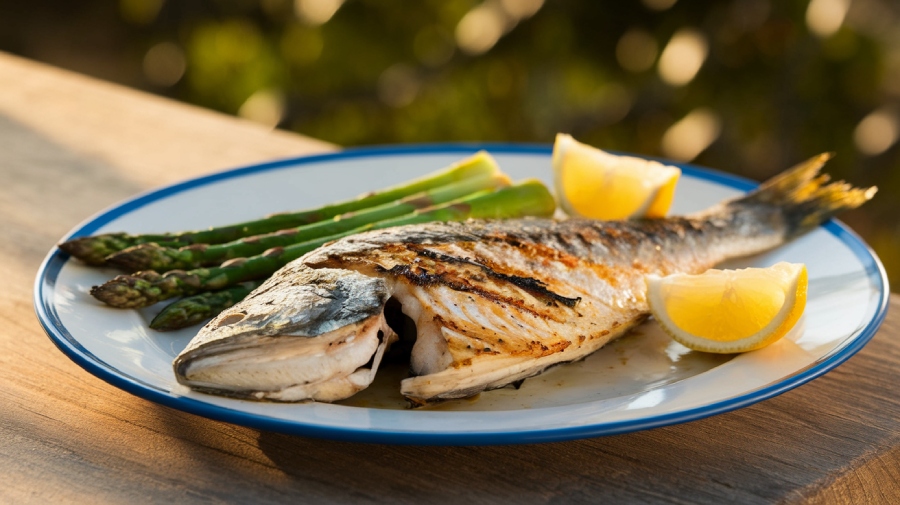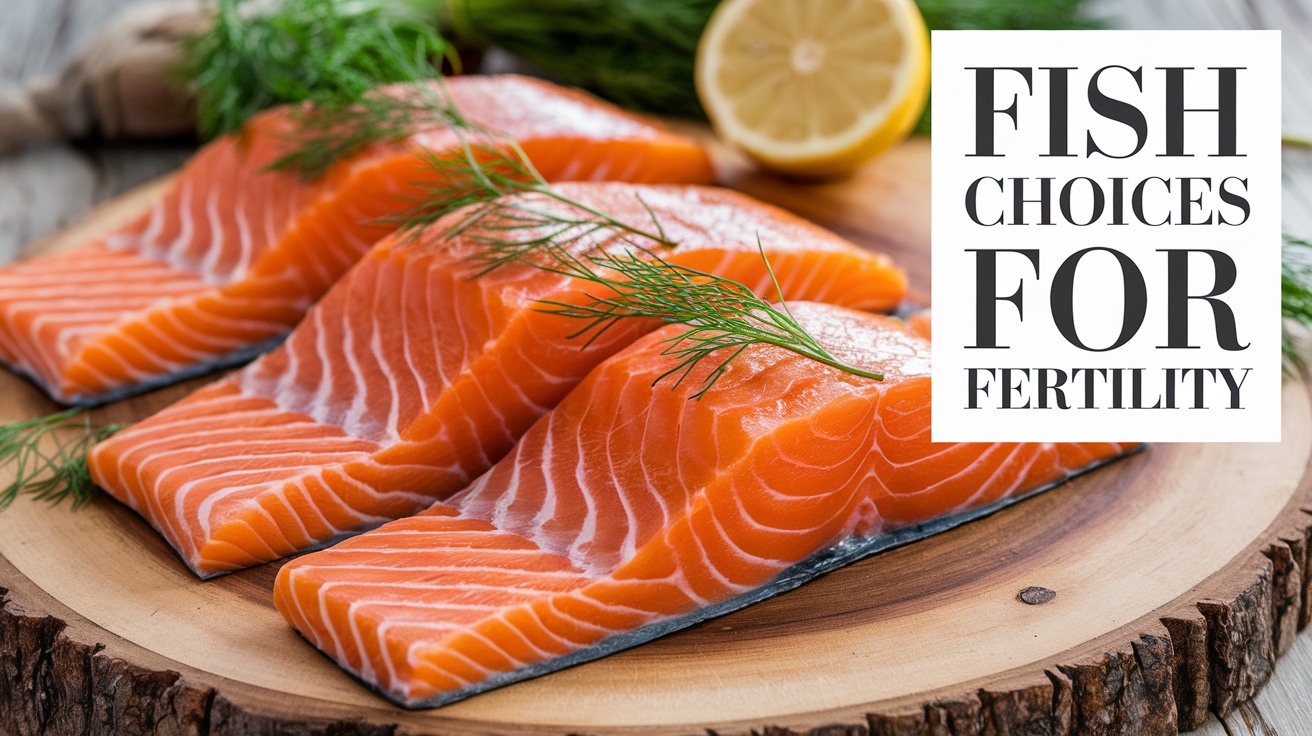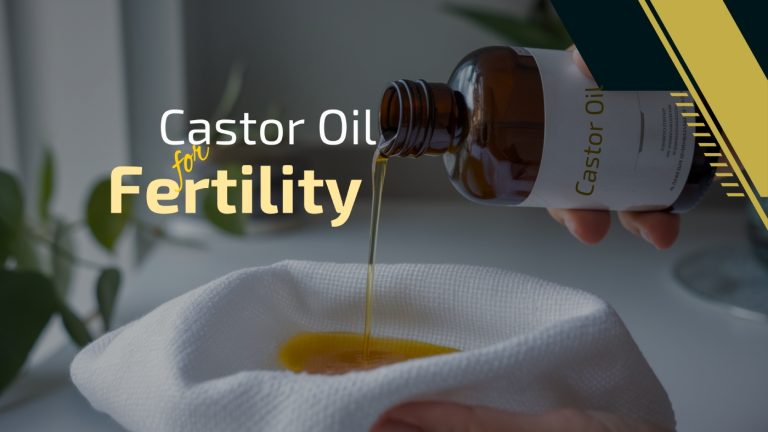Best Fish for Fertility: Low-Mercury, High Impact
To boost fertility, prioritize fish high in omega-3 fatty acids. Salmon, sardines, and mackerel are excellent choices, providing essential nutrients that enhance hormonal regulation, sperm health, and egg quality.
Aim for 2-3 servings of low-mercury fish each week. Wild-caught options are preferable as they contain more nutrients and fewer contaminants.
Avoid high-mercury varieties like swordfish and sharks to protect reproductive health. Incorporating healthy seafood can improve your chances of conception and fetal development.
Curious about how to best incorporate these foods into your diet? There’s plenty more to discover about optimizing your seafood choices for fertility.
Key Takeaways
- Wild-caught salmon, sardines, and mackerel are excellent choices, rich in omega-3 fatty acids and nutrients that enhance fertility.
- Oysters, clams, and mussels provide zinc, which is crucial for improving sperm quality and egg health.
- Consuming 2-3 servings of low-mercury fish weekly supports hormonal regulation and boosts reproductive health.
- Avoid high-mercury fish like swordfish and sharks to reduce health risks while trying to conceive.
- Incorporating a variety of fish types maximizes nutrient intake essential for fertility and fetal development.
Benefits of Fish for Fertility
When you’re trying to conceive, including fish in your diet can greatly enhance your fertility. Research shows that consuming at least eight servings of seafood per menstrual cycle can boost your chances of pregnancy by 61%.
Not only does fish improve your conception rates, but it also increases sexual activity by 22%. The omega-3 fatty acids found in fish support hormonal regulation crucial for ovulation and sperm production.
They also contribute to sperm health, improving motility and morphology. Additionally, omega-3s are essential for healthy egg development.
Aim for 2-3 servings of fish each week to optimize your reproductive health, as recommended by the American College of Obstetricians and Gynecologists. Couples with 8+ servings of seafood experienced higher pregnancy rates, underscoring the importance of seafood in their diet.
Top Fish Choices for Fertility

Incorporating the right types of fish into your diet can greatly enhance your fertility. Salmon, sardines, and mackerel are excellent choices, as they’re rich in omega-3s and packed with essential nutrients like Vitamin D and selenium.
Rainbow trout and wild Alaskan salmon are also fantastic options, offering high levels of DHA while being low in contaminants. For those looking for additional benefits, oysters, clams, and mussels are high in zinc, which supports sperm quality and egg health.
Consuming fish is important because it provides essential vitamins and minerals that contribute to reproductive health. Aim to consume fish 2-3 times a week, mixing various types to optimize your nutritional intake.
Always choose wild-caught fish when possible and consider frozen options to retain nutrients. If you struggle to eat fish regularly, fish oil supplements may be beneficial.
Importance of Omega-3 Fatty Acids
Omega-3 fatty acids play an essential role in enhancing fertility, as research shows a strong association between their intake and improved reproductive outcomes.
For women, a diet rich in omega-3s is linked to higher chances of pregnancy, especially after IVF, and can improve egg quality, even extending reproductive function into later years. Additionally, omega-3 supplementation has been shown to support overall hormonal balance, which is crucial for reproductive health.
Men also benefit, as omega-3 supplementation enhances semen parameters.
Additionally, these fatty acids help regulate hormones, reduce inflammation, and support fetal development during pregnancy.
Ensuring adequate omega-3 intake can notably impact both natural and assisted fertility, making it a vital component of your diet if you’re trying to conceive.
Dietary Recommendations for Fish
To enhance fertility through diet, including fish rich in omega-3 fatty acids is essential. Aim for 2-3 servings of fish per week, focusing on low-mercury varieties like salmon, sardines, and mackerel. This will help guarantee you get the nutrients necessary for reproductive health. Consuming nutrient-dense options like these fish can significantly support reproductive health and improve the likelihood of conception.
| Fish Type | Key Nutrients |
|---|---|
| Salmon | Omega-3s, Vitamin D, Selenium |
| Sardines | Omega-3s, Vitamin D |
| Mackerel | Omega-3s, Vitamin D, Selenium |
Additional Nutrients in Fish
When you’re considering fish for fertility, don’t overlook the importance of vitamin B12 and iodine.
Vitamin B12 plays a vital role in DNA synthesis and red blood cell formation, which is essential during pregnancy. Additionally, couples consuming seafood more than twice a week often experience higher rates of sexual activity and increased chances of conception. Iodine, on the other hand, supports thyroid function, influencing hormone regulation and overall reproductive health.
Vitamin B12 Benefits
Vitamin B12 plays an essential role in enhancing fertility and supporting reproductive health. It boosts sperm quality by improving motility and concentration, while also preventing DNA damage in sperm cells. Adequate levels of vitamin B12 can reduce the risk of miscarriage, as low levels are linked to increased homocysteine. For men, higher B12 levels correlate with increased testosterone, positively impacting fertility.
In women, this vitamin supports a healthy ovulatory cycle, minimizing chronic implantation issues. Additionally, sufficient vitamin B12, along with folate, is vital for preventing neural tube defects in the developing fetus. Including fish rich in vitamin B12 in your diet, such as herring or sardines, can greatly contribute to your fertility health. Furthermore, monitoring intake of vitamin B12 is particularly important for individuals who may be at risk of deficiency.
Importance of Iodine
Iodine plays an essential role in fertility, as it’s important for the production of thyroid hormones that regulate both ovulation and metabolism. A deficiency in iodine can greatly reduce fertility rates and lower your chances of conception.
Studies show that couples with unexplained infertility can benefit from higher iodine intake. During pregnancy, adequate iodine levels are vital for fetal brain development, preventing potential learning difficulties in children. Furthermore, iodine deficiency can lead to lower IQ and reading ability in children, highlighting its significance during conception and pregnancy.
Unfortunately, many women of childbearing age often have insufficient iodine levels. To boost your iodine intake, consider incorporating seafood like cod and haddock into your diet, along with iodized salt and seaweed.
Supplementation for Non-Fish Eaters
For those who don’t consume fish, guaranteeing adequate omega-3 fatty acid intake is vital for maintaining fertility. Omega-3 supplements can greatly support reproductive health, improving egg quality and hormone regulation. If you’re considering supplementation, here are a few options to explore:
- Algae Oil: A vegetarian source rich in DHA and EPA, beneficial for fertility.
- Flaxseed Oil: Contains ALA, which can convert to EPA and DHA, though less efficiently.
- Walnuts and Chia Seeds: Include these in your diet for additional ALA sources. Antioxidants are crucial for protecting eggs and sperm from oxidative damage.
It’s important to consult with a healthcare provider before starting any supplement. Look for third-party tested products that guarantee quality and potency, helping you make informed choices for your fertility journey.
Wild vs. Farmed Fish
When considering fish for fertility, it’s important to weigh the nutritional differences between wild and farmed options. Wild fish typically offer higher levels of omega-3 fatty acids and essential nutrients, while farmed fish can present a more consistent nutrient profile due to controlled diets.
Additionally, the environmental impacts of each type can vary considerably, affecting both your health choices and the planet. Furthermore, wild salmon are a rich source of omega-3 fatty acids, which are essential for reproductive health and overall fertility.
Nutritional Differences Explained
While both wild and farmed salmon offer nutritional benefits, significant differences in their composition can impact your fertility journey.
Wild salmon typically boasts higher levels of essential vitamins and minerals, which are vital for reproductive health.
- Wild salmon contains more protein, omega-3 fatty acids, and lower levels of contaminants.
- Farmed salmon, while still nutritious, has higher fat content and lower levels of calcium and iron.
- Regular consumption of wild salmon can enhance hormonal regulation and improve egg quality. Additionally, wild salmon is generally considered to have a better flavor and texture, making it a more appealing choice for many consumers looking for quality.
Choosing wild salmon may provide a more nutrient-dense option for supporting fertility, but if you opt for farming, moderation is key to minimizing potential health risks.
Avoiding High Mercury Fish
To maintain ideal fertility and overall health, it’s crucial to steer clear of fish known for high mercury levels.
Consuming fish with elevated mercury can pose serious health risks, particularly for those trying to conceive. Here are some types of fish you should avoid:
- Swordfish: 0.995 ppm average mercury load
- Shark: 0.979 ppm average mercury measurement
- Tilefish (Gulf of Mexico): 1.123 ppm average mercury load
Instead, focus on low-mercury options like sardines and salmon.
Mercury naturally occurs and is released through industrial pollution, leading to contamination in certain fish and shellfish species.
Check local advisories for fish caught in your area and adhere to guidelines for pregnant or breastfeeding women and children.
Frequently Asked Questions
Can Fish Consumption Affect My Menstrual Cycle?
Yes, fish consumption can affect your menstrual cycle.
Studies show that eating sport fish from certain regions may lead to a shorter cycle, averaging about 1.1 days less for those who eat it monthly.
Furthermore, regular intake of omega-3 fatty acids found in fish can help relieve menstrual pain.
Is There a Specific Fish to Avoid During Pregnancy?
Imagine traversing a vast ocean, where some waters teem with danger. During pregnancy, you should steer clear of high-mercury fish like shark, swordfish, and king mackerel.
These fish can harm your baby’s development, much like hidden rocks can capsize a ship. Instead, choose low-mercury options like salmon or tilapia.
Stick to 2-3 servings a week, avoiding raw fish entirely to keep you and your little one safe and healthy.
How Does Cooking Method Impact Fish Nutrients?
Cooking methods greatly impact fish nutrients. When you steam or bake fish in foil, you’re likely to retain more beneficial omega-3 fatty acids, like DHA and EPA.
In contrast, deep frying can reduce these nutrients by up to 85%. Boiling preserves omega-3 content better than frying or microwaving.
For the healthiest options, choose methods like sous vide or steaming to minimize nutrient loss and avoid harmful compounds, promoting better overall health.
Are There Fish Allergies That Affect Fertility?
You might wonder if fish allergies can impact fertility. The evidence suggests they don’t directly affect fertility or pregnancy outcomes.
However, managing your fish allergy is vital, as symptoms can disrupt overall health. Avoiding allergenic fish like salmon and tuna is essential.
Notably, some studies link maternal fish intake to lower allergic risk in children, but results are inconsistent.
Always consult a healthcare professional for tailored advice on managing your allergies while considering pregnancy.
Can I Eat Canned Fish for Fertility Benefits?
Yes, you can eat canned fish for fertility benefits. Canned fish, like sardines and mackerel, is packed with essential nutrients such as omega-3 fatty acids, vitamin D, and iodine, which support reproductive health.
They also offer convenience and often contain beneficial calcium from the bones. Aim for 2-3 servings of low-mercury canned fish each week to maximize these benefits, while avoiding high-mercury options to protect your overall health.
The Omega-3 Powerhouse for Fertility
Incorporating fish into your diet can greatly boost fertility, much like the fabled golden eggs of the mythical goose. By choosing omega-3-rich varieties and being mindful of mercury levels, you’re not just feeding your body but nurturing your future.
Whether you’re a seafood lover or exploring supplements, remember that each bite can be a step toward enhancing reproductive health. Embrace the wisdom of nature, and let these nutrient-packed options pave your way to fertility success.




